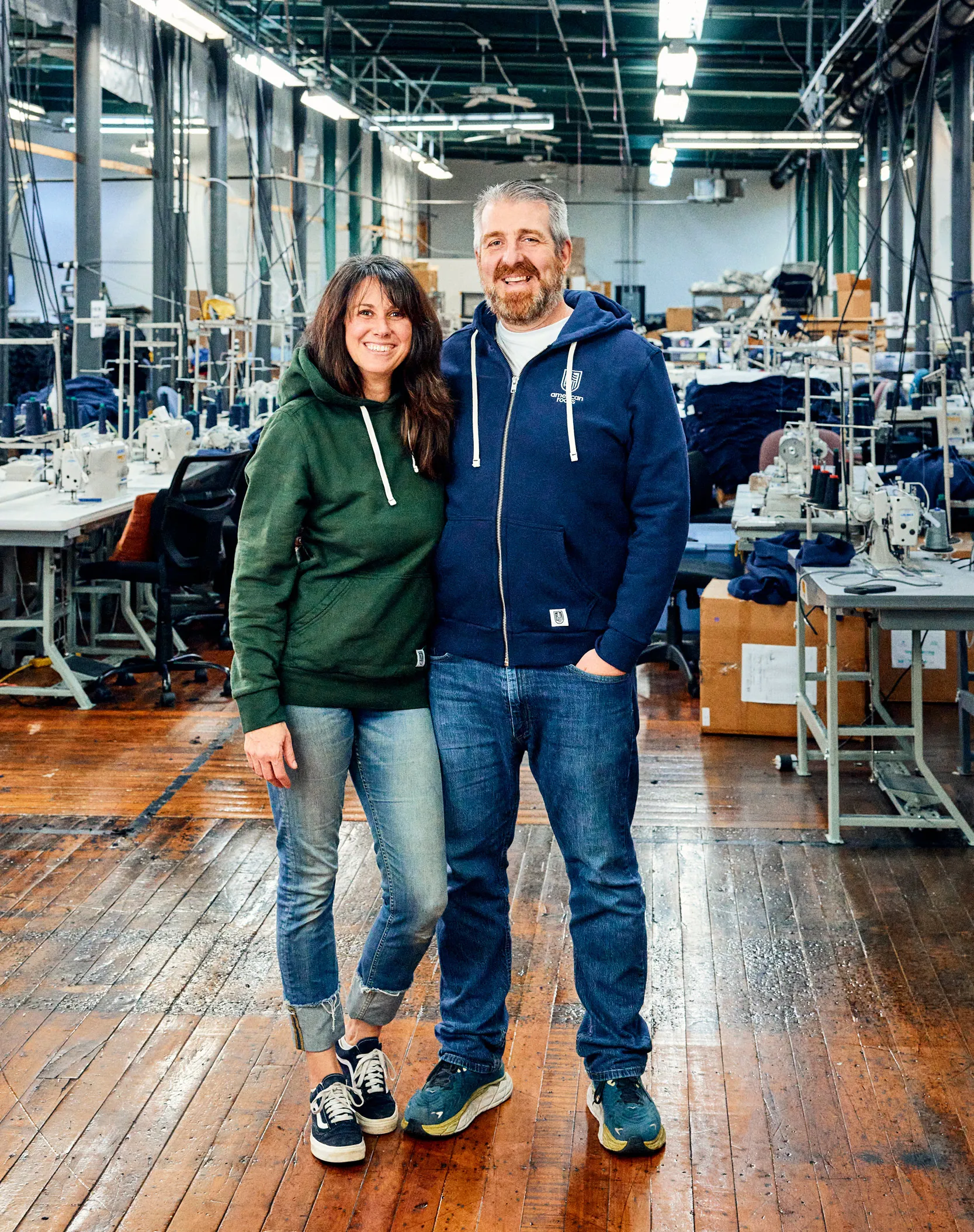
Whitney Waxman and Ben Waxman are co-founders of American Roots Apparel in Westbrook.
The Trump administration’s push to revive American manufacturing through tariffs, as highlighted in a recent New York Times article (“Trump wants America to make things again. Does it have what it takes?” June 4) has sparked a heated debate: Can America make things again?
As a wife-and-husband team who has spent a decade building American Roots — a 100% U.S.-made, unionized apparel company in Westbrook — we believe the answer is yes. But it won’t be easy, and tariffs alone won’t get us there.
The Times article profiles Saitex, a company producing 70,000 pairs of jeans monthly in Los Angeles, dwarfed by its Vietnam factory’s output of 500,000 pairs. This gap illustrates the challenge: America’s manufacturing ecosystem—workers, training, technology, and infrastructure—has been hollowed out over decades.
We’ve faced these hurdles head-on, and our experience offers a blueprint for bringing production home.
When we started American Roots in 2015, we committed to manufacturing every hoodie, jacket and shirt in a unionized factory using an entirely American-sourced supply chain. Sourcing domestically was a grind.
Many suppliers told us, “We don’t make that here anymore.” But we found resilient partners from Massachusetts to California for fleece, cotton and zippers, proving that fragments of America’s supply chain still exist. Rebuilding it requires persistence and investment — not just tariffs.
The bigger challenge is labor. As the Times notes, the U.S. faces a shortage of skilled workers in manufacturing. We’ve seen this firsthand in Maine, where the closure of textile mills took generations of expertise with them.
Our solution was to develop a training program, which inspired Ben’s mother, Dory Waxman, to create an outstanding initiative called Common Threads of Maine, enabling us to build a skilled workforce. We were also assisted by Coastal Enterprises, Catholic Charities of Maine and Goodwill Industries of Maine.
This initiative has empowered new Americans from countries like the Congo and Iraq to become skilled sewers at American Roots. Today, we employ 75 unionized workers through The United Steelworkers Local 366. Training programs like these, scaled nationally, could rebuild our workforce.
Tariffs, as the administration proposes, can shift incentives, but they’re a blunt tool. They’ve disrupted supply chains, as the Times reports, and raised costs for businesses like ours. Instead of relying solely on tariffs, we need government support for domestic suppliers and training programs.
Tax incentives for companies that source and produce locally would help level the playing field against cheaper overseas labor. Our hoodies cost $108–$120 because we pay union wages and offer benefits like health care, 401(k)s, paid sick days and vacation. We believe consumers and corporations may want to prioritize value over price, choosing American-made goods to fuel local economies.
The Times highlights Saitex’s optimism but underscores the scale of the challenge. At American Roots, we’ve grown from a 900-square-foot workshop to a 40,000-square-foot factory, with revenues in the millions and growing year over year. During COVID-19, we pivoted to producing millions of face masks and shields, showing that agility and community partnerships can overcome obstacles. But scaling up requires more than grit—it demands a coordinated effort.
Here’s how we make it in America:
Stop giving tax handouts to companies outsourcing overseas and start rewarding those with the guts and grit to build in America.
Invest in domestic supply chains by supporting suppliers and incentivizing local production.
Fund workforce training to rebuild skills.
Strengthen unions to ensure fair wages and worker input.
Stop the deportation of friends, family and loved ones who are here legally, ready to work and eager to contribute to our economy — they’re part of the solution.
Shift mindsets so consumers and corporations value quality and ethics over cheap goods. Every American-made purchase is a vote for jobs and sustainability.
It’s time to rebuild America’s factories, one stitch at a time.



